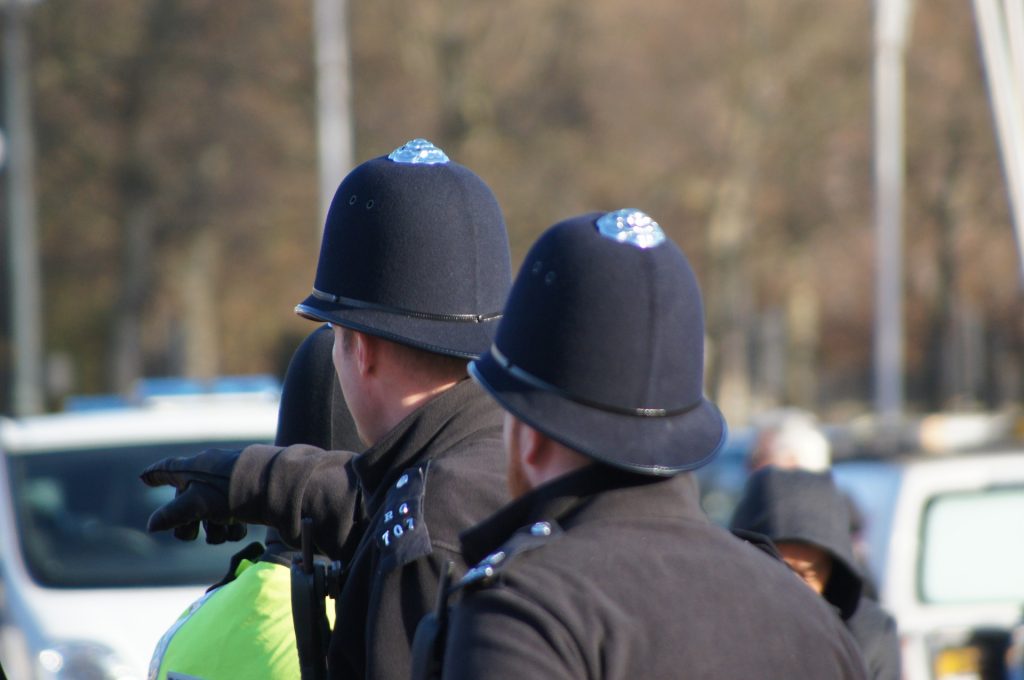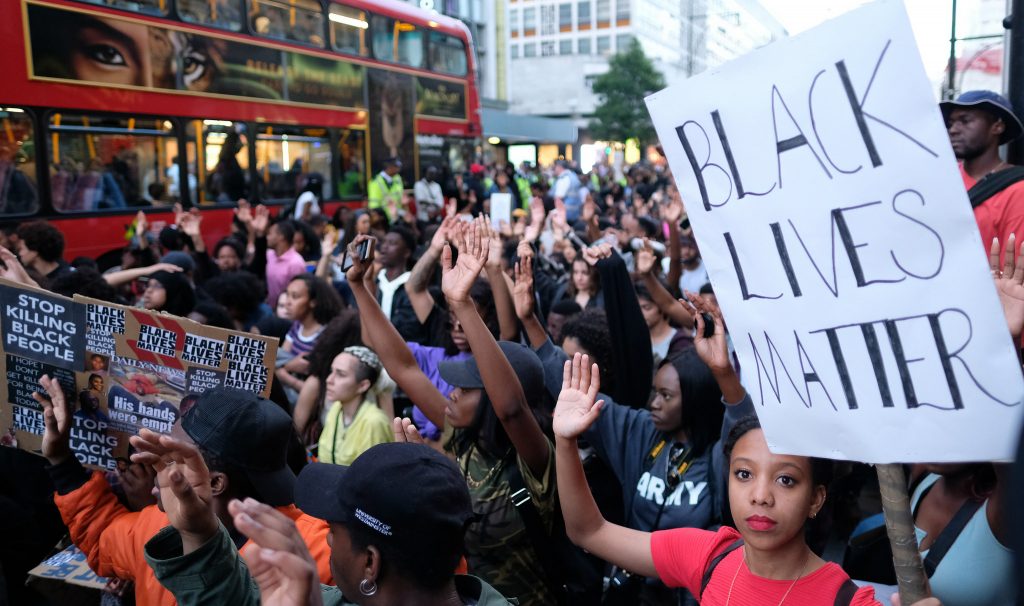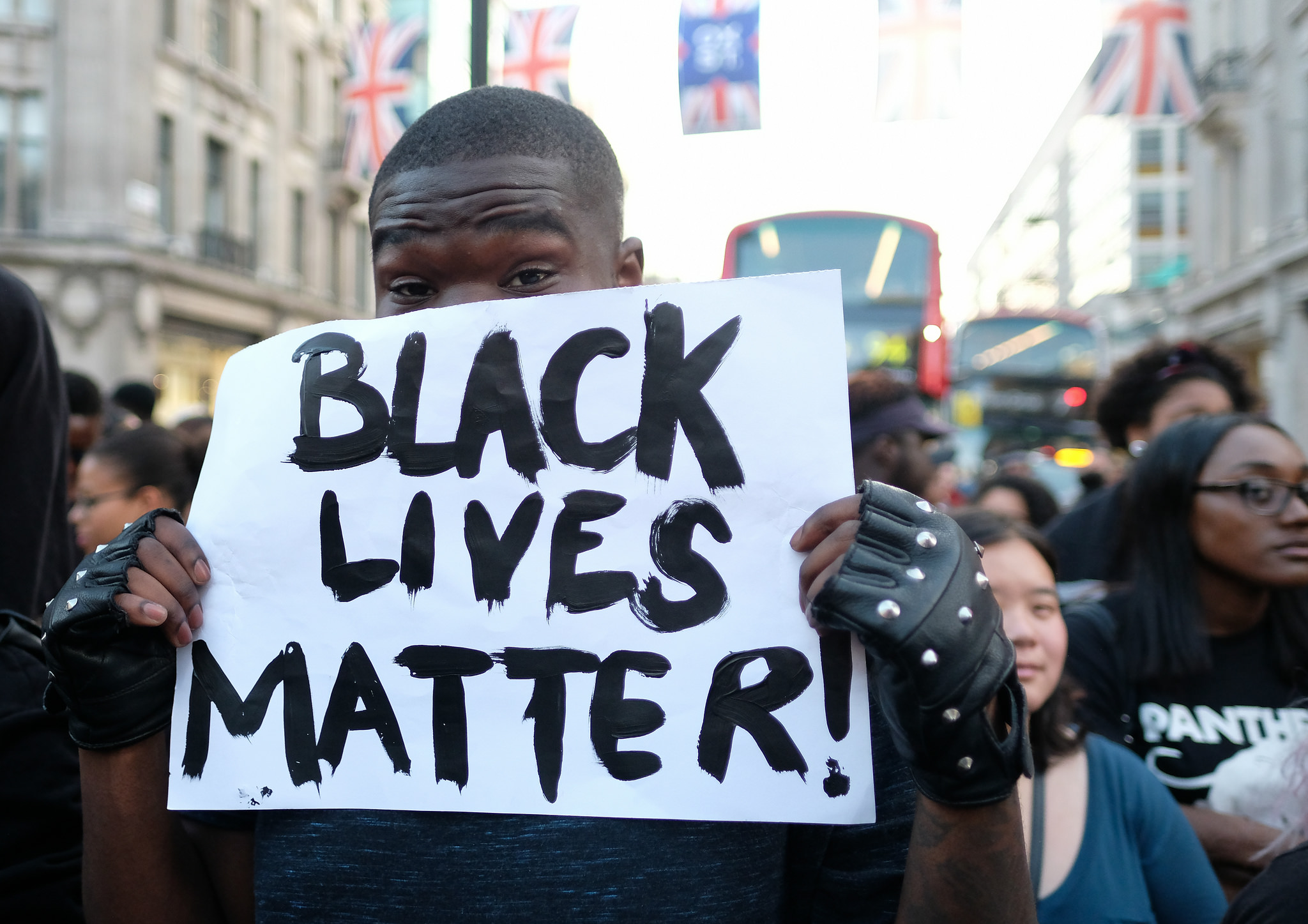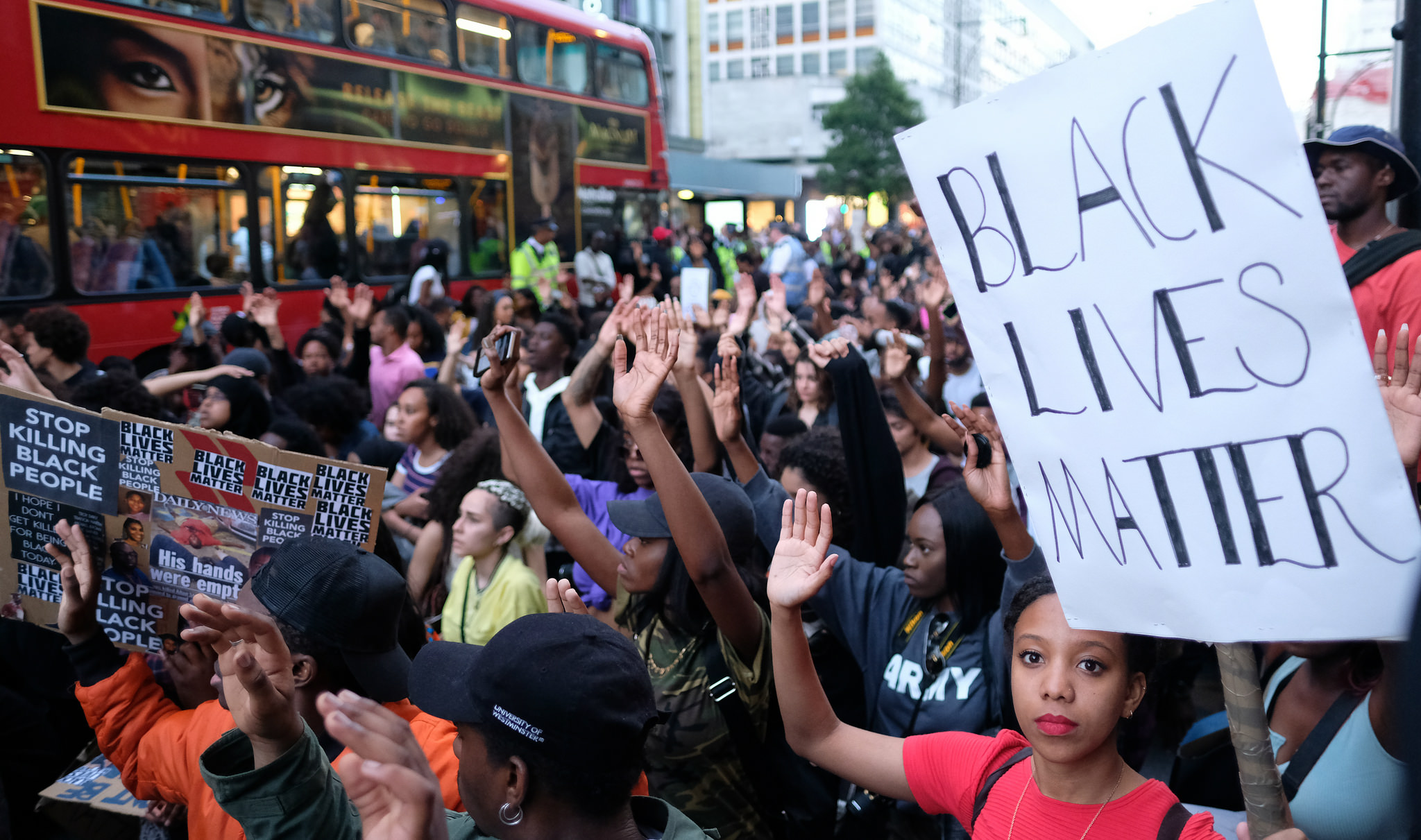The government’s public consultation into extending police stop and search powers to cover corrosive substances, drones and laser pens is drawing to a close. But will the new measures adversely impact groups who are already disproportionately targeted by stop and search?
In September, the Home Office launched a public consultation, which closes on Monday October 22, regarding its proposal to strengthen police powers to prevent acid attacks. The suggested measures would widen the grounds which allow police to stop and search individuals.
Currently, police can stop and search a person they suspect is in possession of a corrosive substance and who is intent on causing injury. The new powers mean police can search anyone they suspect of carrying a corrosive substance in a public place.
Minister for Policing and the Fire Service, Nick Hurd, said: “A bottle of acid can be as lethal as a knife or a firearm, and these new powers will enable police officers to prevent these despicable thugs from carrying out their terrible crimes.
“The Home Secretary has been clear that stop and search is a vital and effective policing tool when used correctly. We will always seek to give police the powers they need to crack down on violent crime and bring perpetrators to justice.”
Figures Show Stop and Search Targets Ethnic Minorities
 Credit: Pixabay Dagmarbendel
Credit: Pixabay Dagmarbendel
However, stop and search has often been considered racially biased as it disproportionately targets black and ethnic minority groups. There are fears that extending the use of stop and search will penalise these communities even further.
A recent report published by Release, LSE and Stopwatch, The Colour of Injustice: ‘Race’, Drugs and Law Enforcement in England and Wales, highlights that in 2016 – 2017 black people were stopped and searched at more than eight times the rate of whites. Asian people and those in the ‘mixed’ group were stopped and searched at more than twice the rate of whites.
Stop and searches for drugs are even more disproportionate in relation to the black community and ethnic minorities. Black people were stopped and searched for drugs at almost nine times the rate of whites, while Asian people and those in the ‘mixed’ group were stop and searched for drugs at almost three times the rate of whites.
.@theresa_may must make good on her 2014 promise to implement mandatory monitoring scheme with firm sanctions for forces that use stop and search unfairly – incl stripping them of power to use it.
And @ukhomeoffice should drop plans to extend s&s powers. https://t.co/FAt4WHZHMa
— Liberty (@libertyhq) October 15, 2018
Zoe Carre, Policy Researcher at Release and co-author of the report, told EachOther: “Evidence suggests that most drug searches are for suspected drug possession (rather than supply) and that drug use is more prevalent among white people.
“If drug policing was fair, then we would expect white people to be searched for drugs at a higher rate than their BME counterparts. However, last year black people were stopped and searched for drugs at nine times the rate of white people, while Asian people were stopped for drugs at three time the rate of whites.
“The disproportionate policing of drugs cannot be explained away. Our findings clearly show that drug law enforcement is perpetuating racial injustice in stop and search and in the broader criminal justice system.”
The report found that all 43 police forces in England and Wales stopped and searched black people at a higher rate than white people.
Theresa May: “Stop and Search is Unfair, Especially to Young Black Men”
 A protestor at a Black Lives Matter march in London July 2016 Credit: Flickr Alisdair Hickman
A protestor at a Black Lives Matter march in London July 2016 Credit: Flickr Alisdair Hickman
In 2014, then Home Secretary Theresa May acknowledged the racial bias in the police’s use of this power and introduced proposals to reform the ways police use stop and search.
She said: “Nobody wins when stop and search is misapplied. It is a waste of police time. It is unfair, especially to young black men. It is bad for public confidence in the police.”
Current Home Secretary Sajid Javid’s proposals to extend stop and search have raised very real fears that young black men and ethnic minority communities will continue to be targeted.
When police needlessly search entire communities they are aiming to engage, they are effectively souring relationships and breeding further distrust.
-Amal Ali, Release
Youth Coordinator at Release, Amal Ali, believes stop and search fuels ethnic minority distrust in the police.
She told EachOther: “Stop and search is a baseless solution for deeper multi-faceted issues and the report not only underscores this but paints a clear picture of who is being relentlessly targeted by this power.
“The young black and ethnic minority people we work with through our youth-led stop and search project ‘Y-Stop’, often share experiences of mistrust in the police that are frustrated by police harassment and profiling.
“Nearly two-thirds of searches last year were targeted at drugs (mostly low-level possession offences for cannabis). When police needlessly search entire communities they are aiming to engage, they are effectively souring relationships and breeding further distrust.
“The suggestion that it is a vital tool to tackle knife and violent crime is fundamentally misleading – evidence shows that stop and search is ineffective at tackling knife crime and other serious violence.”
A Police Power with a Long History of Racial Bias
 Stop and search played a key role in triggering 1981’s Brixton riots Credit: Kim Aldis Wikimedia Commons
Stop and search played a key role in triggering 1981’s Brixton riots Credit: Kim Aldis Wikimedia Commons
Critics argue that these powers have unfairly affected the black community, in particular, for decades. It has been highlighted as a key contributing factor to the Brixton riots of 1981 and Tottenham riots of 2011.
Former police detective, Kevin Maxwell, writing about the proposed extension of stop and search in the Independent said: ‘But I worry that, as with the original stop and search legislation, these new plans will again be disproportionately used on Britain’s ethnic minority communities.
“To understand the black community’s fears, you must look to history. I’m old enough to remember black people in Toxteth, where I was born, feeling the brunt of the “sus laws” that existed – when the police could stop, search and potentially arrest a person on the grounds of suspicion alone, with no need for a victim or witness.
“It doesn’t take a genius to know who was targeted. Then came the controversial stop and search introduced under the Police and Criminal Evidence Act of 1984. Controversial, because again black and brown people were disproportionately targeted.”
You can respond to the government’s public consultation here







